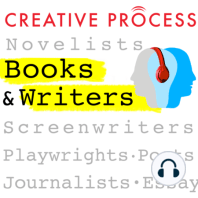20 min listen

Highlights - DAVID J. LINDEN - Professor of Neuroscience - Author of “Unique” “The Accidental Mind” “The Compass of Pleasure” “Touch”
Highlights - DAVID J. LINDEN - Professor of Neuroscience - Author of “Unique” “The Accidental Mind” “The Compass of Pleasure” “Touch”
ratings:
Length:
19 minutes
Released:
May 9, 2023
Format:
Podcast episode
Description
"It's a fundamental human question, how do we become individuals? It's a basic thing about being alive and thinking. Nature versus nurture is a phrase that was popularized by Francis Galton in the late 19th century. and the idea behind it is that if you were to look at a particular trait, say, shyness or height, you could say, well, to what degree can we attribute height to nature? In this case, meaning the gene variants that you inherit from your parents versus nurture in this case, meaning how you were raised by your parents and by your community. And I have many problems with this expression. Part of it is that the nature part shouldn't just mean genetics. In other words, there's all kinds of biological things that are not genetic things. If your mother fought off a viral infection while you were developing in utero, then you have a much higher chance of developing schizophrenia or autism when you grow up. Now that's biological, but it's not hereditary. That's not something that you would then acquire and then pass on to your own children. It only happens in the one generation. The other problem is when we hear the word nurture, we really focus on the family, how your parents raised you or failed to raise you, how your community was involved. And those things are very important, but they're far from everything that impinges upon you in your life. I take experience as the thing to substitute for nurture because it is much more inclusive and it includes not just social experience from your family and your peers and your community, but also experience in the more general sense."David J. Linden is a Professor in the Department of Neuroscience at the Johns Hopkins University School of Medicine. He is the author of Unique: The New Science of Human Individuality, The Accidental Mind: How Brain Evolution Has Given Us Love, Memory, Dreams, and God, The Compass of Pleasure: How Our Brains Make Fatty Foods, Orgasm, Exercise, Marijuana, Generosity, Vodka, Learning, and Gambling Feel So Good, and Touch: The Science of the Hand, Heart, and Mind. His laboratory has worked for many years on the cellular substrates of memory storage, recovery of function following brain injury and a few other topics.www.davidlinden.orgwww.creativeprocess.info www.oneplanetpodcast.orgIG www.instagram.com/creativeprocesspodcast
Released:
May 9, 2023
Format:
Podcast episode
Titles in the series (100)
Highlights-Sir Geoff Mulgan, Author of “Another World is Possible”: Conversation with Professor of Collective Intelligence, Public Policy and Social Innovation, University College London by Books & Writers · The Creative Process: Novelists, Screenwriters, Playwrights, Poets, Non-fiction Writers & Journalists Talk Writing, Life & Creativity